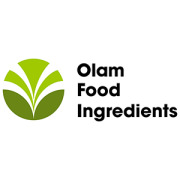News
Could climate change make chocolate extinct?
4 Sep 2018Climate change poses a major threat to cocoa and chocolate production, with some researchers suggesting that cocoa could become extinct in some major producing regions within 30 years.

Up to 90% of current cocoa-producing regions in Ghana and Côte d’Ivoire could become unsuitable for growing cocoa by 2050, according to a study published in the journal Climatic Change. Together, the two countries produce 53% of the world’s cocoa, and major players in the chocolate industry are taking action to help mitigate the effects of climate change on cocoa supply.
Researchers suggest the problem is tied to altitude as well as rising temperatures. Cocoa already grows in some areas of Malaysia where temperatures are higher, but the suitable altitude for cocoa production in West Africa is likely to be pushed steadily uphill, from the current 100-250 metres above sea level, to 450-500 metres above sea level by 2050.
However, researchers say that because these changes are set to take place over several decades, there is still time for adaptation.
Scientists are working on breeding hardier cocoa varieties to resist drought, but progress is slow. One recent study found that only about 100 new varieties have been released since 2000, mainly because of limited infrastructure focused on the final stages of plant breeding. Another strategy would be to plant (or replant) shade trees around cocoa plantations, reproducing conditions under which cacao trees tend to be most productive and resistant to pests. In addition, shade trees protect cacao trees from soil and wind erosion, and help prevent carbon from being released into the atmosphere. Many smallholders in West Africa are already taking this approach.
Meanwhile, major cocoa and chocolate suppliers like Barry Callebaut and Cargill have outlined plans to safeguard production, and the world’s biggest chocolate companies including Mars, Nestlé and Mondelez are taking steps to help ensure sustainable supply.
Cargill has implemented a strategy it calls the Cargill Cocoa Promise, which aims to limit deforestation, improve traceability and build economic resilience among cocoa farmers. Among a range of initiatives, the company provides guidance for cocoa farmers on good farming practices. It says farmers in Côte d’Ivoire saw their yields increase by an average of 49% in the 2016-17 period after implementing this guidance.
Barry Callebaut also has a strong focus on cocoa sustainability, including working with 92 cooperatives in Côte d’Ivoire and Cameroon. In addition, it has a direct sourcing enterprise called the Biolands Group, which works directly with more than 42,000 farmers to provide training, farming inputs and assistance in producing certified cocoa.
Such initiatives are of increasing importance to chocolate manufacturers, many of which have outlined targets for more sustainable production. CocoaAction, for example, is an initiative of the World Cocoa Foundation and signatories include Barry Callebaut, Blommer, Cargill, Ferrero, The Hershey Company, Mars, Mondelēz International, Nestlé, and Olam Europe. The aim is to leverage scale and cooperation to accelerate sustainability in the cocoa sector.
If the initiative can successfully mobilise these companies to take significant action, it could go a long way toward securing the future for the chocolate confectionery industry – but the next decade or so is likely to be crucial.
Related news

Retail landscape lacks nutritious and affordable food, says ATNi
30 Dec 2025
A rapid increase in modern food retail has given retailers growing influence over consumer diets, according to global non-profit ATNi’s latest assessment.
Read more
Debate over ban on ‘meaty’ names for plant-based products reaches stalemate
26 Dec 2025
The debate over a ban on plant-based products using “meaty” terms has reached a stalemate, leaving manufacturers in limbo and still facing overhauls to their marketing and packaging.
Read more
Multi-sensory food and drink products to gain traction in 2026
16 Dec 2025
Trend forecasters predict that sensory elements will play a larger role, helping food and beverage brands differentiate themselves in a competitive market in 2026.
Read more
Big appetite for M&A between European and US food and drink companies
3 Dec 2025
Persistent tariffs on EU food and beverage exports have helped drive record levels of M&A activity between European and US companies this year, according to analysis by ING.
Read more
Non-UPF Program extends certification scheme to entire food industry
30 Nov 2025
The Non-UPF Program has extended its certification scheme to the wider food sector, championing a move towards healthier consumption habits.
Read more
Lancet study links UPFs to chronic disease risk
26 Nov 2025
UPFs are consistently associated with an increased risk of diet-related chronic diseases, according to a comprehensive review of global evidence in The Lancet .
Read more
Concerns swirl around cinnamon’s compliance with EU law
25 Nov 2025
Cinnamon may be a top functional ingredient, but it needs stronger protocols to ensure it meets EU food safety laws and quality standards, say researchers.
Read more
Oat Barista: Innovation for game-changing beverages
20 Nov 2025
Oat Barista is a clean label, sustainable, and innovative drink base specifically designed to create the perfect foam in one single ingredient.
Read more
How younger consumers are redefining ingredient choices and rejecting brand loyalty
18 Nov 2025
Gen Z and millennial consumers’ preferences for transparency, functionality, and purpose are “redefining the very nature of consumption itself”, says SPINS.
Read more
Hybrid formats and flexible positioning to disrupt category norms in 2026
17 Nov 2025
Trend forecasters expect food and drink to move more fluidly across occasions, functions, and formats as consumers seek versatility, novelty, and convenience.
Read more


